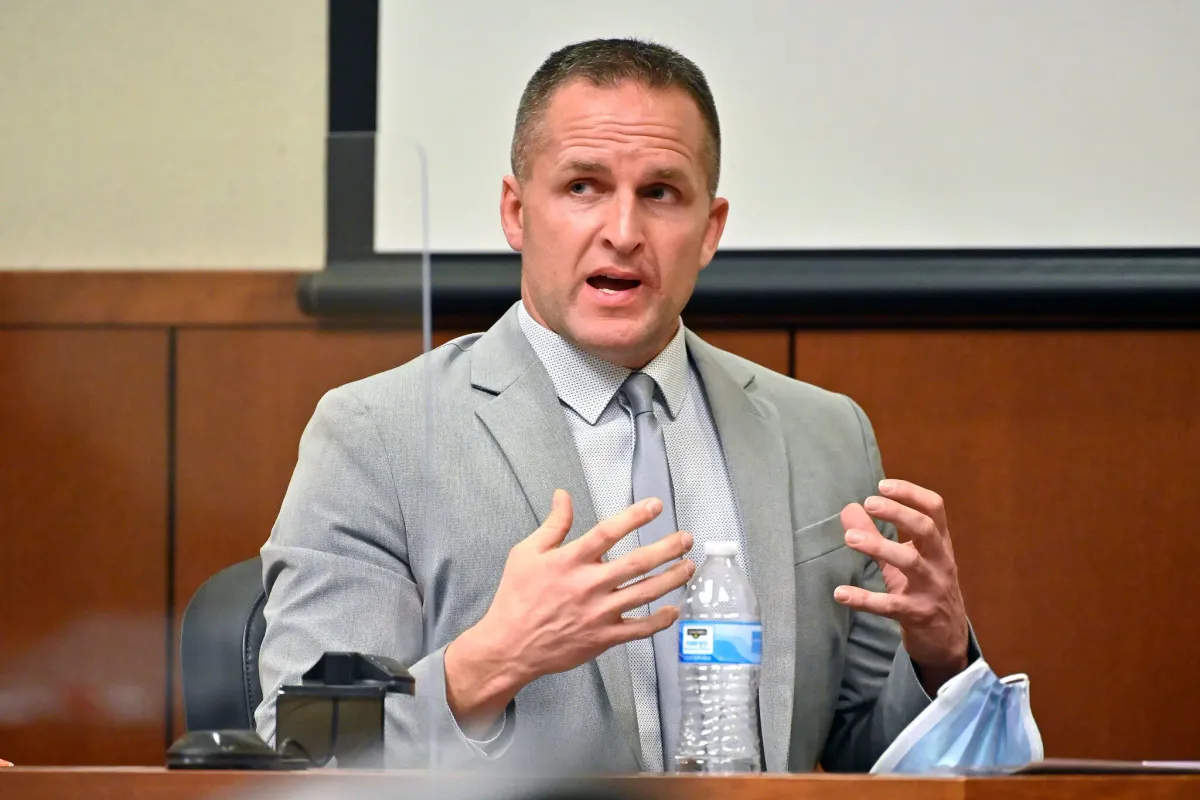Judge Sentences Ex-Officer in Breonna Taylor Raid to Nearly 3 Years in Prison

A federal judge defies DOJ recommendation for no prison time, calling the government's approach to the case "incongruous and inappropriate"
A federal judge on Monday sentenced former Louisville police officer Brett Hankison to 33 months in prison for violating Breonna Taylor's civil rights during the deadly 2020 raid that killed the 26-year-old Black woman. The sentence marks the first time anyone involved in the case has been sent to prison.
US District Judge Rebecca Grady Jennings directly rejected the Department of Justice's extraordinary recommendation that Hankison receive only one day in jail—time already served—calling the approach "incongruous and inappropriate." The judge said no prison time would "not be appropriate" for Hankison's actions.
The Case and Conviction
Hankison fired 10 shots through Taylor's apartment windows during the March 13, 2020 raid, though none of his bullets struck anyone. His shots flew through Taylor's walls into a neighboring apartment. Taylor was fatally shot in her hallway by two other officers after her boyfriend fired at police, striking one officer in the leg.
The former detective was convicted in November 2024 on one federal count of violating Taylor's civil rights through excessive force. He was the only officer charged in connection with Taylor's death, making him the first person sentenced to prison in a case that sparked nationwide protests and became a symbol of police accountability.
DOJ's Controversial Recommendation
The Justice Department's sentencing memo, signed by Trump appointee Harmeet Dhillon rather than career prosecutors, argued that Hankison's actions were "unreasonable" but noted that he "did not kill or wound Breonna Taylor, her boyfriend, her neighbors, defendant's fellow officers, or anyone else."
The recommendation represented a dramatic shift from the aggressive prosecution that led to Hankison's conviction. Federal prosecutors had originally argued that he "blindly fired 10 shots" into Taylor's windows without identifying a target.
Judge Jennings expressed disappointment with the government's position, saying the Justice Department treated Hankison's actions as "an inconsequential crime." She also noted being "startled" that more people weren't injured during the raid.
Community Response
Civil rights attorney Ben Crump, who helped Taylor's family secure a $12 million wrongful death settlement, called the DOJ recommendation "an insult to the life of Breonna Taylor and a blatant betrayal of the jury's decision."
After the sentencing, Crump led the crowd outside the courthouse in chanting "Say Her Name"—"Breonna Taylor!"—the rallying cry that became synonymous with demands for police accountability following her death.
Taylor's killing, along with George Floyd's murder two months later, galvanized the 2020 racial justice protests that swept the nation. The case highlighted issues with no-knock warrants—police found no drugs or cash in Taylor's apartment despite the drug warrant used to justify the raid.
Louisville police arrested four protesters outside the courthouse Monday for what they described as "creating a confrontation" and "creating an unsafe environment," though specific charges weren't immediately disclosed.
What's Next
Hankison, 49, will not report directly to prison. The Bureau of Prisons will determine where and when he begins serving his sentence, which also includes three years of supervised probation.
Three other former Louisville officers have been charged with crafting a falsified warrant in connection with the case, but have not yet gone to trial. None were present during the raid that killed Taylor.
The sentencing comes as the Trump administration has moved to cancel police reform settlements with Louisville and other cities, signaling a broader retreat from Biden-era efforts to address police misconduct.
The case continues to reverberate as communities and legal experts debate what constitutes meaningful accountability for police officers who violate citizens' civil rights. For many, Hankison's sentence represents both a rare instance of criminal consequences for police misconduct and a reminder of how difficult it remains to secure convictions in such cases.




